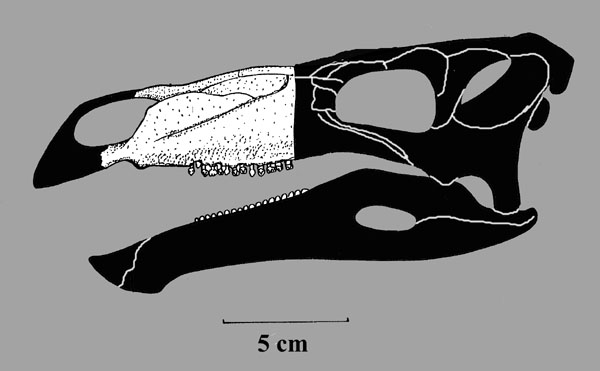
Species: africanus (BROOM, 1910) COOMBS, 1971
Etymology: In reference to Africa, where the specimen was discovered.
= Palaeoscincus africanus BROOM, 1910
= Anthodon serrarius OWEN, 1876 (partim)
= Paranthodon oweni NOPCSA, 1929
Holotype: BMNH 47338 (S.A. 30)
Locality: Bushmans River near Woodbury Farm was named Iguanodonhoek, South Africa.
Horizon: Kirkwood Formation, Uitenghanbe Group.
Biostratigraphy:
Age: Middle Tithonian Stage, Upper Malm Epoch, Late Jurassic or early Valanginian Stage, Middle Neocomian Subepoch, Lower Early Cretaceous Epoch, Early Cretaceous.
Material: Partial skull.

Referred material:
BMNH 47558 (S. A. 31): Left mandible with teeth in matrix.
BMNH 47337 (S. A. 123): 3 vertebrae in matrix.
Leg and Hip bone, now lost.
Two ends of a large humerus, now lost.
BMNH 47338 (S.A. 31*): Matrix with fragments and impressions.
BMNH 47337a: Three vertebrae in matrix.
Number: Not given: Two ends of a large humerus.
Both destroyed in a fire at the Albany Museum at Grahamstown in 1940.
Locality: Uitenhage System on Sundays River, Uitenhage, South Africa.Horizon: Wood-bed stage.
Biostratigraphy:
Age: Early Cretaceous?.
Material:
BMNH 4992 (BMNHR502): Two teeth.